Partnering to Protect the Planet
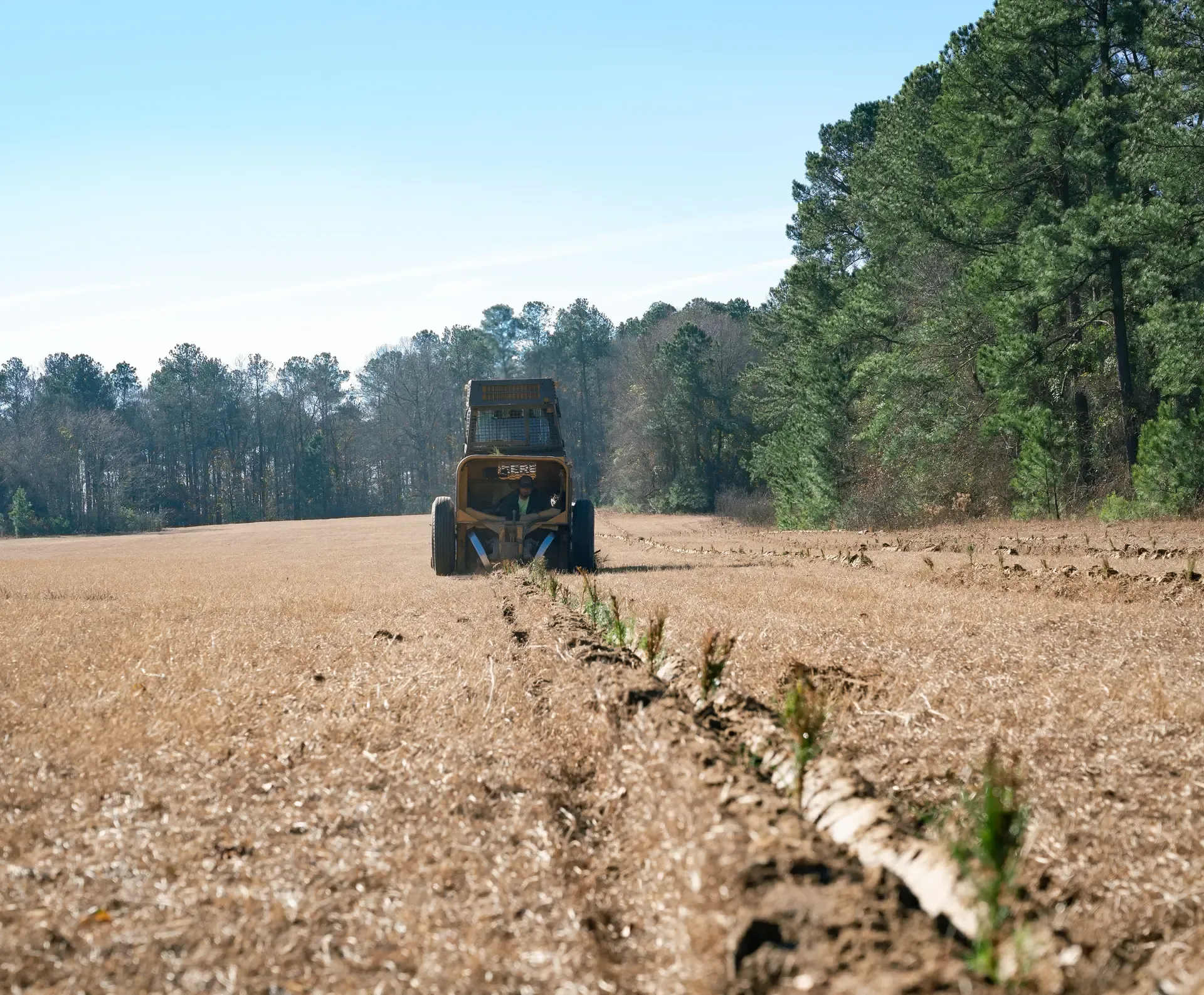
Loblolly pine seedlings being planted
Boots on the ground, fresh air, the sun’s warmth, and the wildlife’s rustling. Unlike some organizations that reserve meaningful discussions for conference halls or board rooms, at AFF, many of our most productive meetings occur beneath the canopy of trees. This is why when partnering with organizations, we invite them out to meet the family forest owners we work with and demonstrate firsthand why we do this work.
The Field to Forest Tour in January 2024 was our most recent gathering designed to convene existing and potential funders from the public and private sectors, as well as key implementation partners to work together to scale our collective climate impact. It was also a chance to learn more about Field to Forest. Field to Forest is possible thanks to countless partners in Georgia and nationwide.
Field to Forest works with family landowners to transition their underutilized row crop and pastureland into loblolly pine forests, creating a new revenue stream for landowners and growing trees to help mitigate climate change. The project was first piloted in Georgia, in 2023 and is now officially launching this year with plans to expand across the Southeast.
Public and private partnerships will be the key to scaling the project to its full potential. While the project aims to enroll 5,000 acres by 2025, we anticipate, 65 million acres of crop and pastureland can be activated in the fight against climate change. Rita Hite, President and CEO of AFF explained, “This potential does not get realized without partners—landowners who are willing to partner with us; public and private actors who are willing to roll up their sleeves and work alongside us, to build trust, to improve credibility and integrity of our credits; public and private actors who are willing to invest, whether it’s through philanthropy, grants, or purchase of carbon credits.” So, AFF invited existing and potential funders from the public and private sectors, as well as key implementation partners to see the on-the-ground work happening in Georgia.
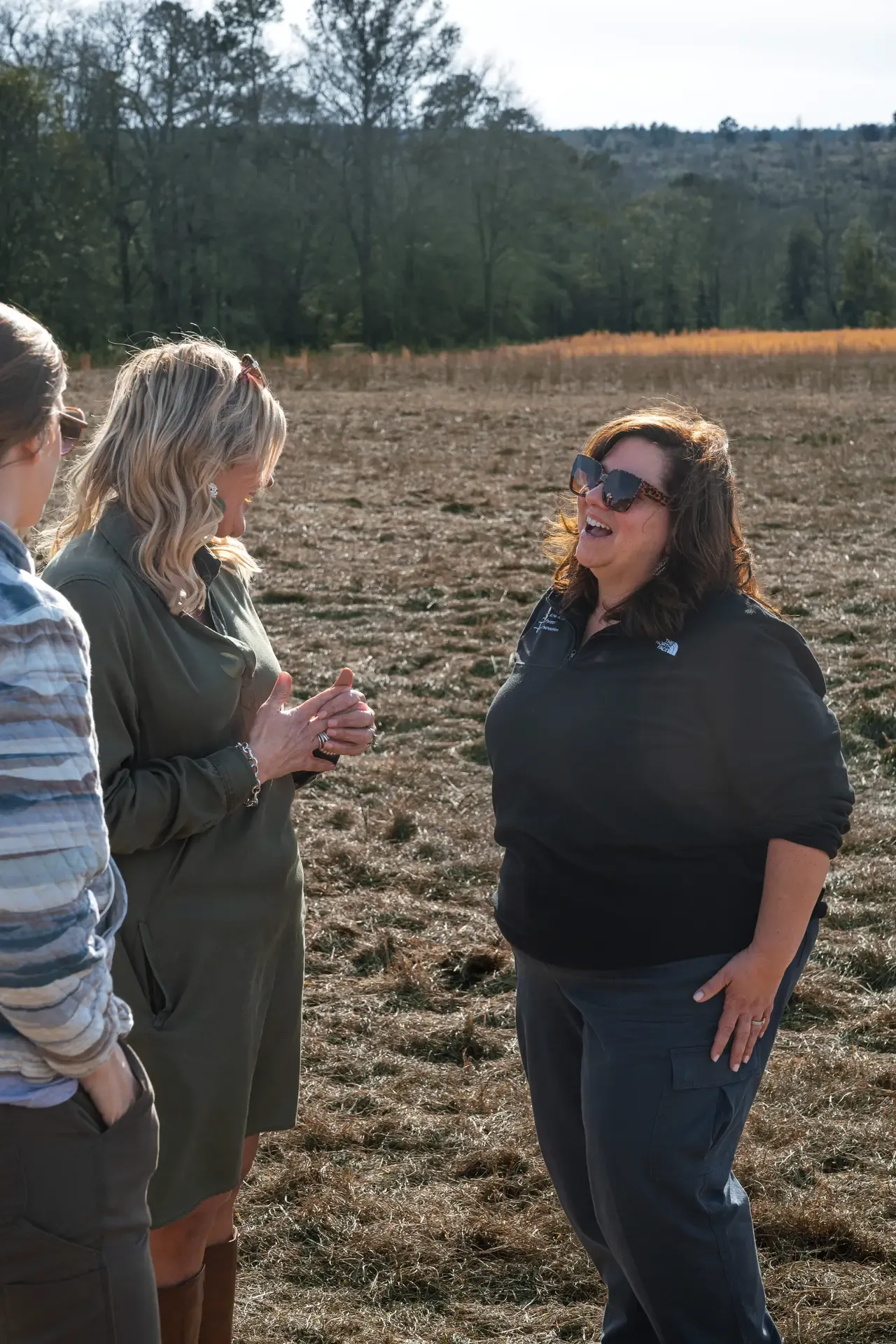
Landowner Alisha Logue talks with Rita Hite, President and CEO of AFF
Private corporations keen on investing in reforestation projects, such as Field to Forest, wanted to understand the work they’d be supporting, including who the landowners were, the enrollment challenges, and the science of the project. Public agency leadership and staff wanted to get up to speed on the voluntary carbon market as combating climate change became central to their work. Both public and private funders want to understand the whole ecosystem and how each stakeholder can play a role in scaling the carbon market. “We know that public-private partnerships are critical to scaling natural climate solutions. We are excited to have these partners with us on the ground floor as we build these efforts.” Sr. Director of Philanthropy, Beth Riley said.
More than 70 attendees and AFF staff hit the ground in Georgia to meet the landowners and learn more about Field to Forest. The tour introduced three landowners, Mitch Cliett, Wade Rabun, and Alisha Logue, part of the project’s first cohort. Our stop on the tour was was Cliett’s property. Hunting this land with his father was a highlight of Cliett’s childhood. Years later, Cliett enrolled in Field to Forest to conserve the land’s natural beauty and continue its legacy.
AFF’s Field to Forest is designed to be a one-stop shop for landowners like Cliett. Cliett said, “AFF made it easy for me as the landowner. There wasn’t much for me to do. That was a selling point.” Once enrolled, the project provides landowners with a contracted forester who will work with them to develop a planting and forest management plan that fits their goals and their land needs. The project also pays for and coordinates the entirety of the preparation, planting, and forest management plan development.
During our visit to Cliett’s property, participants witnessed the inaugural planting of Field to Forest. Over 19,000 loblolly pine seedlings were planted on Cliett’s land, the first of more than 300,000 trees across the cohort. Hite marked the occasion alongside AFF’s partners, the U.S. Department of Agriculture, Georgia Forestry Commission, Arbor Day Foundation, US Forest Service, NRCS, and the Southwest Georgia Project. Together, these partners were integral in getting Field to Forest to this moment. “Whether you are a landowner, a government employee, a not-for-profit professional, or a corporate change maker, despite our different roles, I know with absolute certainty that I have a role to play, and you have a role to play, too.” After remarks, partners grabbed their shovels and planted the first saplings of a soon-to-be forest. “We’re not just planting seeds here today; we’re planting a forest that Mitch will care for and steward. Mitch is one of tens of thousands of folks across the state of Georgia and millions across the country who are stewarding and caring for their land,” said Hite.
Once enrolled, the project provides landowners with a contracted forester who will work with them to develop a planting and forest management plan that fits their goals and their land needs.
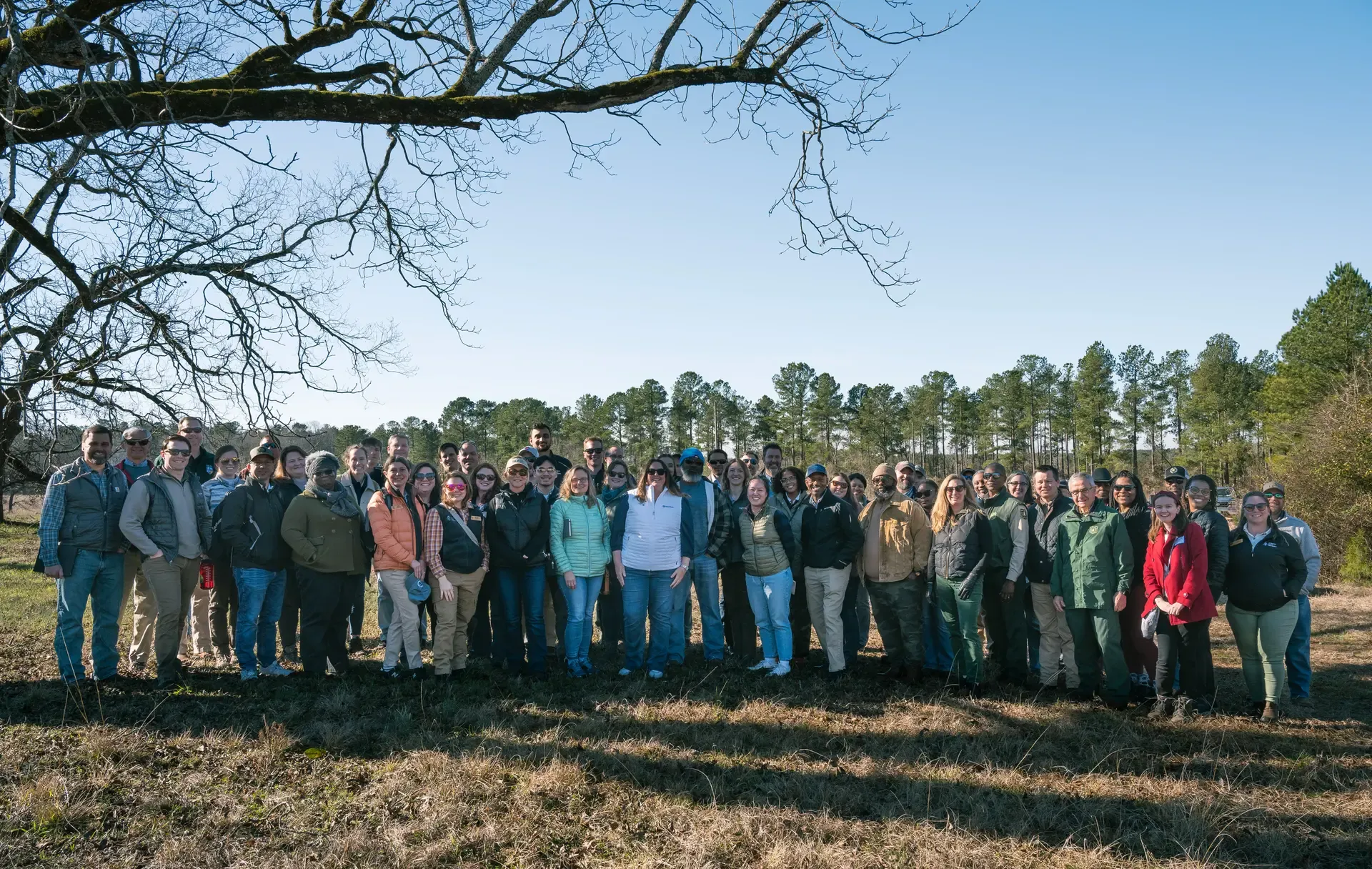
Field to Forest field tour attendees beginning their tour in Warren County, Georgia
Partners learned more about the forestry behind Field to Forest and the motivations of the landowners who enroll at the next property. Here, Wade Rabun raised cattle and grew crops for decades. Five years ago, Rabun retired and began looking for more manageable ways to support his property and set up the next generation for success.
“The reason I enrolled in this program is that I’m 73 years old and I’m not going to do any more farming. I did this for my youngins. If I’m not going to farm it, I need to do something to maintain the land to keep it from growing up.”
Field to Forest works with landowners like Rabun to activate their lands in the fight against climate change. The program does this by removing barriers, like high costs and bureaucratic complexity, that have long prevented landowners from accessing the benefits of the voluntary carbon market. So far, though, the program has exclusively worked with family forest owners to manage their existing forests. Now, with Field to Forest, the program plans to create new forests, planting trees where there haven’t been any for many years. And in turn, the project is developing new forest owners. “We’re not just planting trees in the ground. We’re welcoming landowners into a community of forest owners.” said Aimee Tomcho, Senior Forester at AFF, to attendees.
Building trust was integral to introducing landowners like Cliett and Rabun to forestry. “I think many folks were skeptical of this program because when things are too good to be true, people don’t believe they are true. But this is true. While more people like me are enrolling and benefiting from the program, more people will see that it’s true,” said Rabun. Many of retreat attendees represented government agencies that will share opportunities like Field to Forest with the landowners they serve. They used this field tour as an opportunity to learn about the project’s benefits. Thankfully, a lunch hosted by local partners, the Georgia Cattlemen’s Association, was next on the agenda.
Georgia Cattlemen’s Association showed the meaning of Southern hospitality with a lunch of freshly grilled steaks, a host of piping hot sides, and, of course, the southern classic, pimento cheese. GCA’s Tammy Cheely also shared how she was initially dubious of the project but was convinced when she saw the financial opportunities for her community. Cattle and farming were a way of making money and a way of life, and landowners feared losing that. Fortunately, Field to Forest offers landowners multiple income streams, allowing them to continue raising cattle and growing crops while adding forestry to their land’s portfolio. “We have great land, great pine trees, and we’re cattle country. When one is down, another is up,” explained Cheely.
To close the day, attendees headed to Alisha Logue’s property. Despite lacking land management expertise, Logue took on the responsibility of managing her family’s land when her uncle was ready to pass it down. For Logue, it’s about her family’s legacy, “I want something to pass down to my grandbabies.”
After learning about landowners and forestry at the previous properties, AFF’s Lynn Riley shared the science behind the program. The project needed to enroll landowners and grow healthy trees, but most importantly, it needed to remove carbon from the atmosphere. An ongoing challenge attendees discussed was identifying the difference between high and low-quality credits. This distinction was integral to ensuring a true climate impact and building trust in the voluntary carbon market. To ensure the integrity of their credits, AFF relies on a dynamic baseline methodology that compares enrolled properties to a control group of similar unenrolled properties. This dynamic baseline helps AFF isolate the project’s interventions as the reason carbon is sequestered and stored.
Beyond the dynamic baseline, the key to AFF’s rigorous science is constantly questioning assumptions. And AFF was comfortable sharing where it had been incorrect and was now making changes. Learning out loud philosophy was central to the whole Field to Forest Tour. AFF is still refining Field to Forest and needs partners to help build the solution.
After a day of learning in the field, partners gathered to brainstorm their roles in scaling the voluntary carbon market and projects like Field to Forest. Partners explored how to enroll more landowners, ensure the integrity of credits, and build increased public-private partnerships. They identified the vital need for better communication and outreach to landowners, stronger legislation and resources to catalyze positive change, and more investment to fund the recruitment and stewardship of family lands and the research and tools to ensure a true climate impact and high-integrity carbon credits.
Throughout the site tour, it became clear that Field to Forest has tremendous potential to create new income opportunities for forest owners and capture more carbon to mitigate our changing climate. It also became clear that the key to unlocking that potential would be philanthropy, government, corporations, and landowners all partnering together. The tour was an exciting opportunity for AFF to convene public and private sector funders to build that collaboration. But it is just the beginning. AFF is excited to continue working with landowners and public and private sectors to enable more opportunities for the voluntary carbon market to thrive, and funders to invest so that projects like Field to Forest scale to their full potential.
Interested in partnering with AFF? We look forward to learning more about how we can work together to advance Field to Forest, an innovative solution designed to help landowners tap into the power of carbon markets.
Related Articles
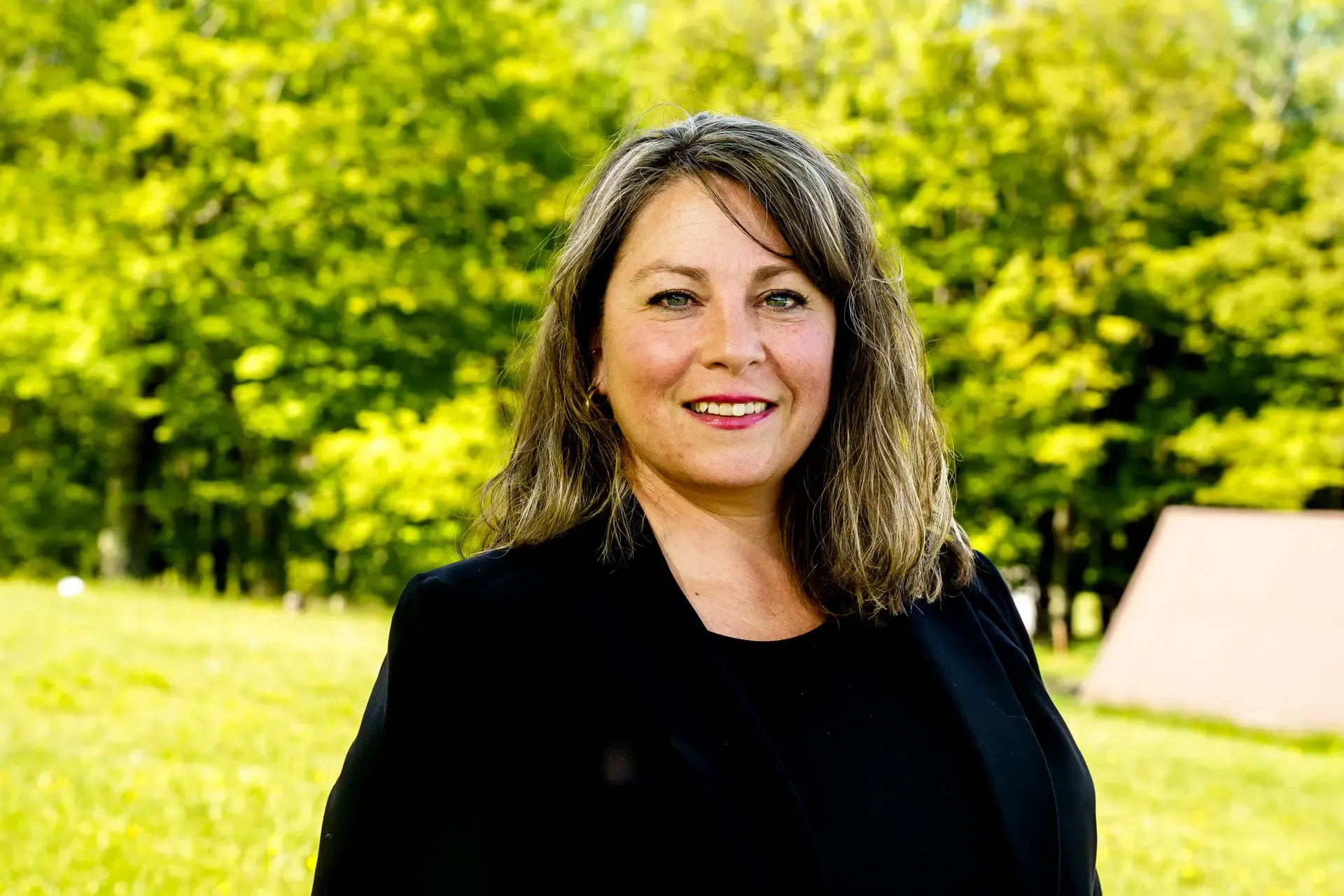
November 17, 2023
Forester Spotlight: Aimee Tomcho
“The magic of forests inspires me in ways words cannot describe. I can't think of better way to spend my life than walking among trees, working to keep forests in the landscape.”
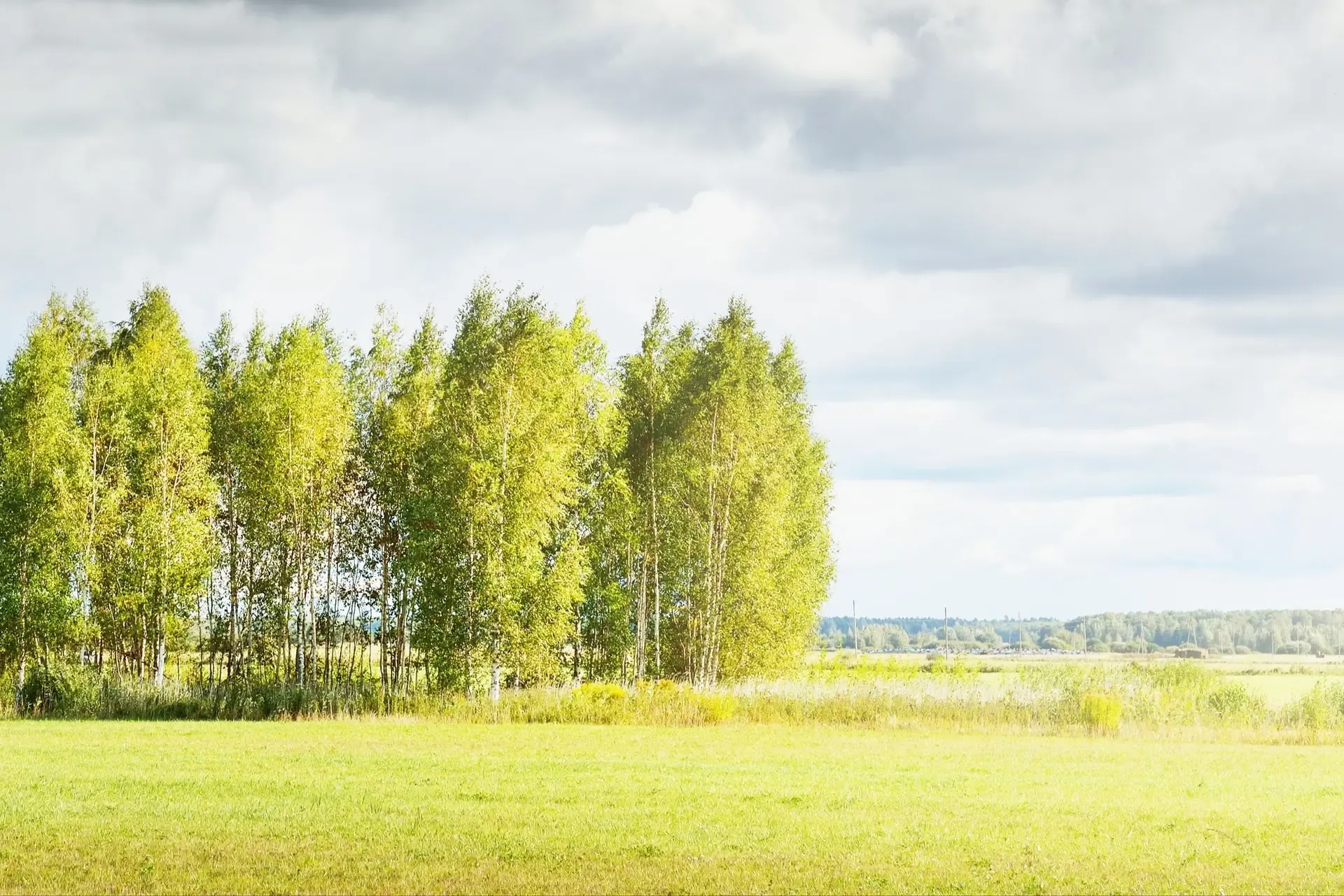
June 27, 2023
Field to Forest: A New Way to Invest in Traditional Georgia Pine
Let’s talk about Field to Forest, AFF’s new pilot carbon practice in Georgia. Field to Forest is designed to support family landowners in Georgia by planting regional-specific loblolly pine seedlings on marginally productive or difficult to manage pastures and croplands.
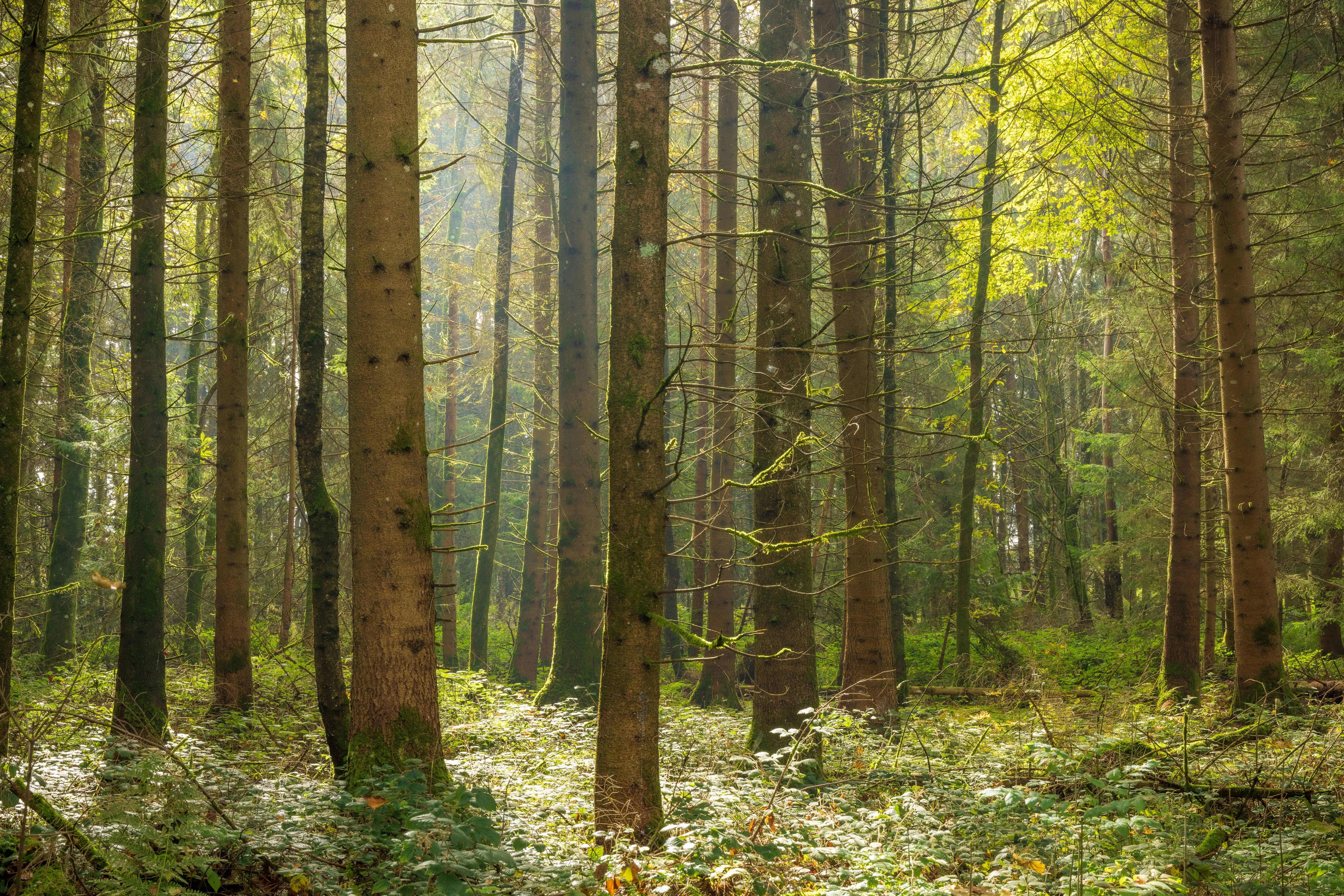
December 4, 2025
Forest Carbon Project Issued First Ever Credits
Conservation organizations the American Forest Foundation (AFF) and The Nature Conservancy (TNC) announced today the issuance of improved forest management (IFM) carbon credits to the Family Forest Carbon Program (FFCP) from standards setter Verra under its Verified Carbon Standard (VCS) Program. This marks the first issuance of credits produced using Verra’s VM0045 improved forest management (IFM) methodology, which was co-developed by Verra, AFF, TNC, and TerraCarbon.